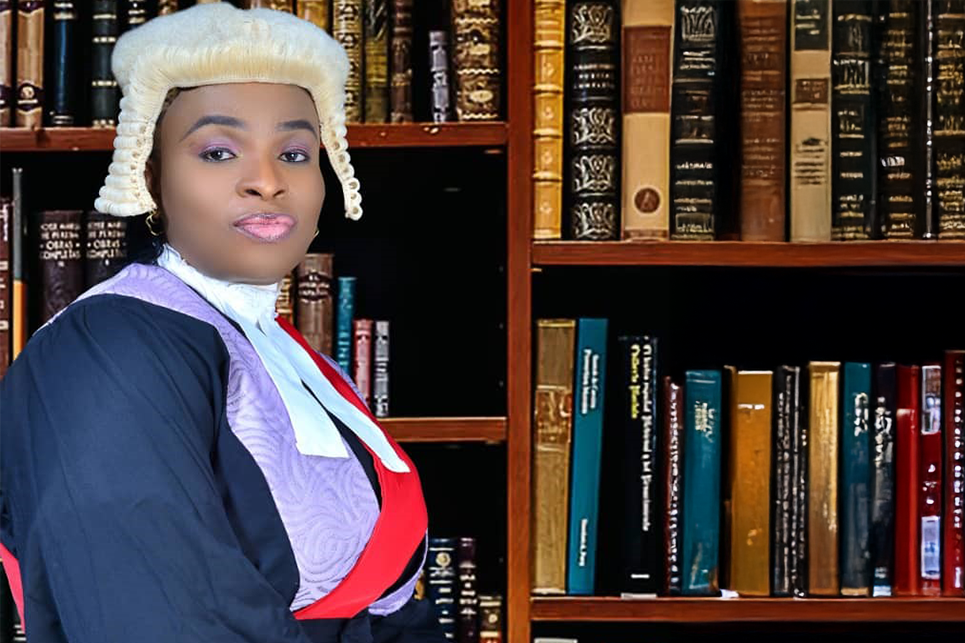UNODC's training package for judges, a sensitive and necessary endeavour
12 March 2019 - The importance of judicial impartiality and integrity has been at the core of many philosophical treatises on judicature. Five centuries ago, in his Essay LVI: Of Judicature, Francis Bacon had pertinently defined some of the qualities necessary for a judicial vocation: "Judges ought to be more learned than witty, more reverend than plausible, and more advised than confident. Above all things, integrity is their portion and proper virtue."
Pursuing such exemplary integrity remains central to every judge's aspirations, and to society's conception of justice. While dedication and hard work are prerequisites, if only to study and understand vast numbers of laws, legal cases and best practices, the learning process and the consolidation of judicial temperament does not end with the appointment of a judge to court. To remain current and fresh, judges are well served by regular revisions and updates to enhance their performance on the job, through a variety of means.
 It is the
Bangalore Principles of Judicial Conduct, endorsed by the United Nations in 2003, which have been the reference on all judicial matters around the world, setting the standards of judicial integrity, transparency, independence and strength. With judicial standards at risk in some areas of the world, in countries where the independence of the judiciary is under attack, it is all the more important to ensure that the Principles remain the ultimate measure of judicial standards, and that judiciaries are trained to ensure they are protected.
It is the
Bangalore Principles of Judicial Conduct, endorsed by the United Nations in 2003, which have been the reference on all judicial matters around the world, setting the standards of judicial integrity, transparency, independence and strength. With judicial standards at risk in some areas of the world, in countries where the independence of the judiciary is under attack, it is all the more important to ensure that the Principles remain the ultimate measure of judicial standards, and that judiciaries are trained to ensure they are protected.
In its commitment to the promotion of a culture of lawfulness, UNODC's Global Programme for the Implementation of the Doha Declaration is contributing to strengthening judges' knowledge foundations and helping rejuvenate their instincts. One of the resource packages developed to this end is the Global Judicial Integrity Network's tailor-made Judicial Ethics Training Package, which includes an e-learning course, a self-directed course, and a Judicial Conduct and Ethics Trainers' Manual.
Promoting judicial integrity by supporting those who will themselves train judges and judicial staff in their respective countries, these UNODC resources are being rolled out in 40 pilot countries. This month, the fourth training of trainers was organized at UNODC headquarters in Vienna, gathering judges and judicial staff from some 20 countries, all aiming at organizing trainings in a near future and incorporating these unique resources. Marco Teixeira, Senior Programme Officer, welcomed the judges and launched the training by reminding them of the principal goals shared by all: "The Network's purpose is to collectively address existing and emerging challenges related to judicial integrity and to promote peer-learning and information exchange."
The training naturally focuses on the end goal of strengthening judicial integrity, and it additionally offers great insight on behavioural psychology, learning styles, and group dynamics. It also explores at length the entire cycle to delivering a training, from the role of trainers and facilitators in managing the project, to planning, execution and post-training evaluation, with copious examples and case studies to support the experience throughout. While such matters and considerations are applicable to trainings in all professional categories, they attain a higher level of sensitivity when judges are in the learning seat. As put by Professor Jeremy Cooper, retired judge and judicial training expert, "conduct and ethics is a challenging issue, because it invites judges to consider their own practices and habits."
Indeed, many intricate details need to be considered when dealing with judges, including the potentially intimidating position of having to train a veteran judge on judicial integrity and notions of cognitive biases, the possibility of training judges with different levels of experience, the delicate matter of deciding whether such trainings should be compulsory or elective, or the tricky issue of how to respond to a participant giving a wrong statement, to name but a few. The training advocates the concept of blended learning, through a variety of methods which can apply both to recently qualified judges and to established, senior judges who may need or desire a refresher course.
Feedback on UNODC's trainings has been hugely positive, with numerous participating judges expressing a desire to organize trainings of their own as soon as possible. Having taken part in a previous training in Vienna, Judge Raja Jahnazaib Akhtar even shared his experience after conducting his own training in Pakistan: "They all said it had been a great learning opportunity and a useful exposure to the Principles, considered to be the bedrock of a successful judicial career. I also strongly encouraged participating judges to complete the interesting e-Learning course offered by UNODC."
The training package is already available in English on the Network's website. The e-Learning course will also be available this week in Russian, Arabic, French and Spanish. In addition, the translation of the trainer's manual and of the self-directed course into the same languages is being finalized, and the translation of all tools to Portuguese is expected within a few weeks.
Additional information
Global Judicial Integrity Network


